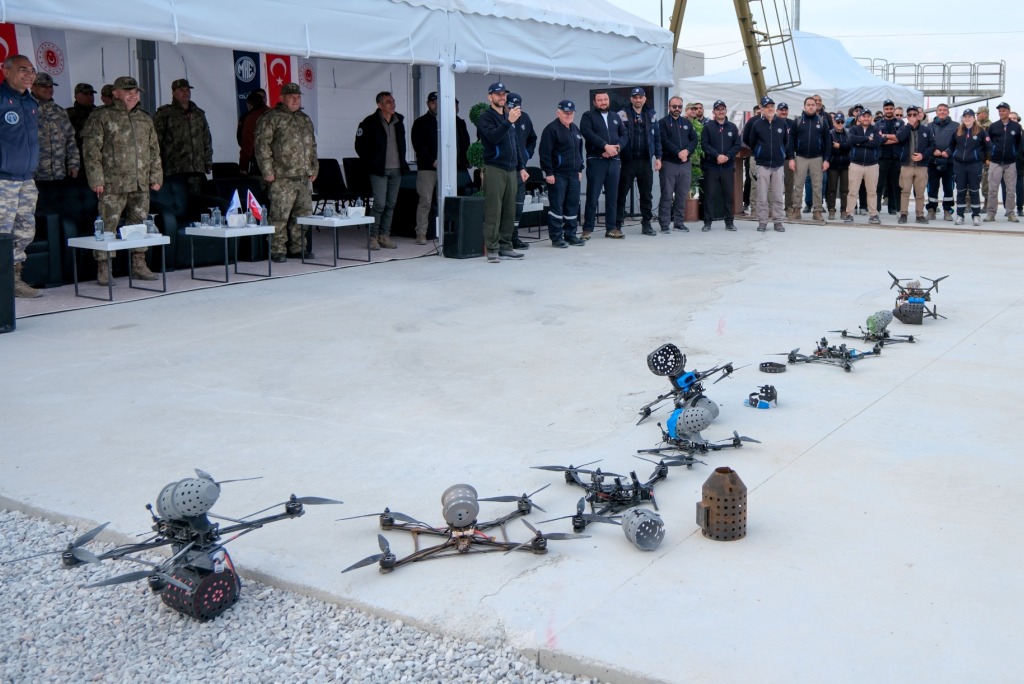Insights from the 2025 Space Conference in Aalborg
Under the auspices of the Danish Presidency of the Council of the European Union, the 2025 Space Conference convened in Aalborg, uniting policymakers, researchers, industry leaders, and students to deliberate on Europe’s strategic objectives in space, defense, and technological innovation. The European Commission played a pivotal role throughout the event, facilitating discussions ranging from opening plenaries to direct engagements with academia and collaborative dialogues with the European Space Agency (ESA) and the European Union Agency for the Space Programme (EUSPA).
Context and Objectives of the Conference
The 2025 Space Conference, held at Musikkens Hus in Aalborg on October 20-21, was orchestrated by Aalborg University and the Danish Ministry of Higher Education and Science. This event aimed to underscore the contribution of space initiatives to Europe’s economic vitality, innovation landscape, and security framework. Over two days, delegates engaged in plenary discussions and thematic sessions aimed at scrutinizing Europe’s strategic ambitions in the space domain, alongside actionable measures to enhance competitiveness and resilience.
Keynote Address: Interlinking Space and Defense
EU Commissioner for Defence and Space, Andrius Kubilius, inaugurated the conference, articulating the intrinsic connection between Europe’s space aspirations and its defense readiness. He reiterated the European Commission’s earlier proposals, which include:
- A Vision for the European Space Economy, comprising forty initiatives.
- The EU Space Act, intended to create a consolidated market for space-related services.
- An ambitious multiannual budget of €131 billion earmarked for defense and space initiatives, marking a fivefold increase over previous funding rounds.
Kubilius emphasized that robust space capabilities are imperative for enhancing Europe’s security posture, stating, “Without space, there will be no defense readiness.” Additionally, he announced the forthcoming launch of the European Space Shield next summer, designed collaboratively with Member States and bolstered by existing systems such as Galileo, Copernicus, and IRIS².
The Commissioner also outlined various imminent milestones, including the operational commencement of GOVSATCOM and the ongoing acceleration of the IRIS² project. Plans for an Earth Observation Governmental Service (EOGS) aimed at geo-intelligence development were presented, with user requirements targeted for consolidation by November, followed by security stipulations in early 2024.
Policy Dialogue: Challenges and Opportunities
Following the keynote, a moderated dialogue featured Christina Egelund, Denmark’s Minister for Higher Education and Science, and Joachim Finkielman, Director of DI Defence and Security Industries. Anders Fogh Rasmussen, former Danish Prime Minister and NATO Secretary General, initiated the discussion by highlighting pressing challenges facing Europe in space:
- Competitiveness of launch vehicles
- The dominance of private mega-constellations in orbital allocations
- An investment shortfall relative to the United States
Panelists discussed practical strategies for a cohesive European response. Kubilius reiterated the objective of the EU Space Act to eliminate fragmentation and establish streamlined operational frameworks for increasingly crowded orbital environments. Egelund advocated for sustained public investment to catalyze private sector engagement, emphasizing the need for systematic support for the Danish innovation framework within a European context.
Finkielman underscored the necessity for higher political ambition and fewer regulatory barriers, highlighting urgency in translating research into deployable technological solutions.
Fostering Youth Engagement
A notable component of the conference was an engaging dialogue between Commissioner Kubilius and over a hundred university students as part of the EU Youth Policy Dialogues. Topics discussed included regulatory frameworks, innovation, and the intersection of defense and space. Kubilius, reflecting on his scientific background, emphasized the rapid evolution of the space sector and the importance of not lagging behind global competitors.
He highlighted the IRIS² program as a means to establish a secure satellite communication system, superior to alternatives such as Starlink. Students engaged in dialogues about maintaining competitive advantages while avoiding regulatory overreach, leading to a discussion on the purpose of the EU Space Act in harmonizing diverse national regulations.
Translating Innovation into Market Opportunities
The conference’s second day spotlighted initiatives that translate innovation into tangible economic opportunities. Sessions on Earth Observation and artificial intelligence featured distinguished contributions from the ECMWF and EUSPA, demonstrating advancements in climate and environmental applications through Copernicus data.
Fiammetta Diani, Head of Market, Downstream and Innovation at EUSPA, highlighted the CASSINI initiative as a pivotal framework fostering space entrepreneurship in Europe. This initiative has notably facilitated close to €50 million in funding for Danish enterprises through various competitions and collaborative encounters, amplifying regional innovation clusters.
Discussions surrounding IRIS² addressed industrial participation and its implications for dual-use technologies, integrating insights on how to align innovation with strategic autonomy and resilience in Europe.
Exhibition of European Space Achievements
An accompanying exhibition showcased the components of the EU Space Programme, featuring displays of significant milestones, including initial images from the Copernicus Sentinel-4 satellite and upcoming missions related to the Galileo and Sentinel-1D satellites. This visual representation provided attendees with insight into the unfolding narrative of Europe’s space endeavors.
Conclusion: Strategic Pathways Ahead
The Aalborg conference served as a vital forum for policy negotiation, institutional synergy, youth engagement, and innovation exemplars. The European Commission’s involvement underscored pre-established priorities, detailing progress on the Vision for the European Space Economy and preparation for the EU Space Act.
As Europe gears up for forthcoming legislative actions, resilience efforts, and service adaptations, the dialogues initiated in Aalborg encapsulated how national ambitions converge with European objectives, fostering collaborative efforts among academia, industry, and policy stakeholders.





